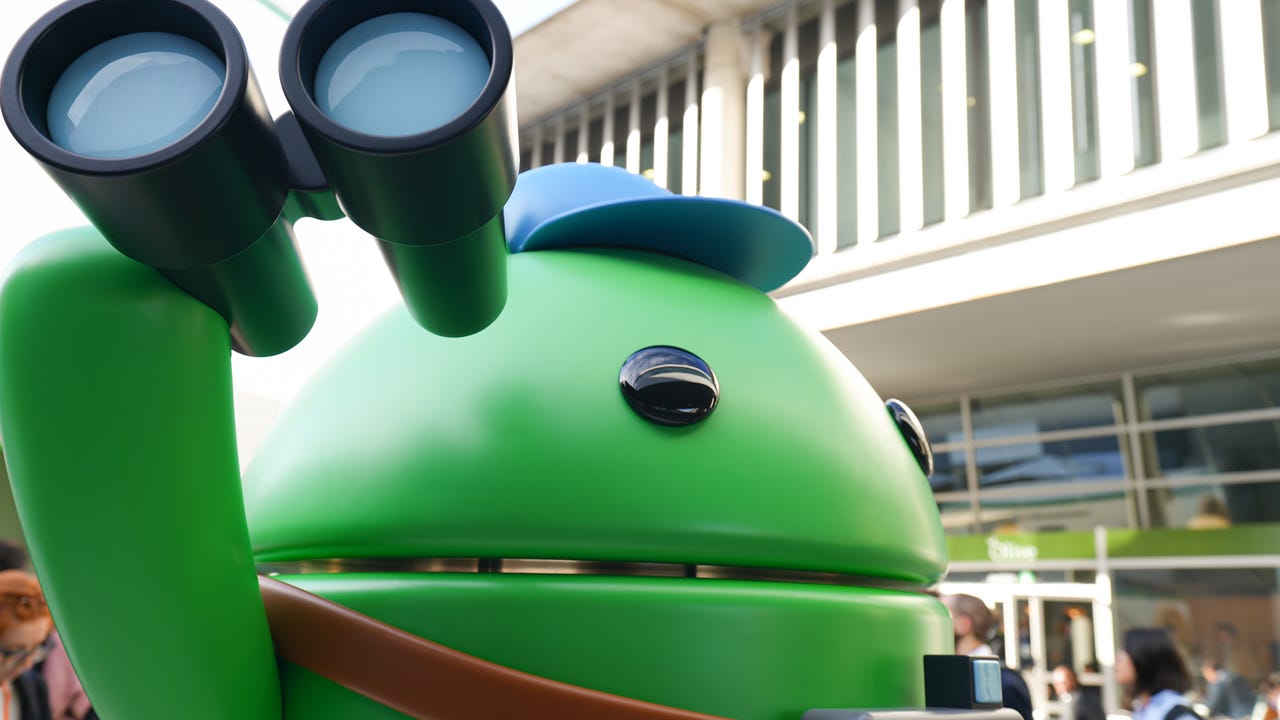
































I've been using Android since version 1.5. For the most part, the journey has been smooth and without major failure. Sure, there have been issues, but those concerns were dealt with easily. And, to be honest, there's no way I'd switch to an iPhone because I value Android's flexibility too much.
Also: Need a news app? Here are my top 5 across Android, Linux, and iOS
However, there are a few features I'd love to see Google borrow from iOS. I've come up with five, but I'm hard-pressed to think of other iOS features that could improve Android.
Without further ado, let's dive in and see what iOS has that Android doesn't.
I wouldn't say Apple has a monopoly on IT security, but the company does have a good track record. While iOS focuses more on software security, Android splits the difference between hardware and security. I feel that approach means Android has to make up in hardware what it lacks in software. Because of this gap, more malicious code gets into the Google Play Store than the Apple App Store. With most users across the globe going mobile first (over desktops or laptops), security must take center stage. To that end, it would be great if Android had the level of vetting in the Google Play Store that iOS has in the Apple App Store.
Also: Google's latest project could help protect you against cookie theft
To be clear, I'm not saying Android is insecure. It's not. You should be fine if you don't install apps outside the Google Play Store or random apps with untrustworthy developers. In all my years using Android, I've never had a piece of malware or ransomware on a phone. But then again, I only install the apps I need.
This feature is painfully obvious. iPhones have fantastic integration with MacOS desktops and laptops, whereas Android devices do not.
Now, I understand why this integration is so challenging for Android. The walled-in ecosystem of iPhones makes it simple for Apple to develop features that allow iOS and MacOS to integrate seamlessly. Android, on the other hand, does not. Android users go to great lengths to get their mobile devices to sync with their less mobile counterparts. Many don't even bother trying to connect their phones to their desktops -- and that's understandable.
Also: How to create Android Routines
Sadly, I can't imagine Google will ever find a solution to this problem, other than its continued reliance on the cloud. In the meantime, we must depend on third-party apps like KDE Connect or the GNOME Shell extension, GSConnect. The problem with these solutions is that they aren't easy enough for all users.
If there's one thing that iOS has over Android, it's the look. And I'm not just talking about the hardware (which Apple does a spectacular job with). Even though the iPhone home screen tends to get littered with app launchers (I do hate that), the iOS GUI is beautiful. The blur effect is great and the animations are incredibly smooth.
Also: How to set up a new Android phone
Android doesn't have nearly the overall look of iOS and probably never will. When I look at Android, I always think it's too utilitarian. On the other hand, iOS is all about art. Google should pay more attention to what Apple does in design because it's getting blown out of the water.
Because iOS has superior RAM management, iPhones can do more with less. For Android to keep pace with iOS, the system depends on more hardware (more RAM). This situation is even true with Google's new Tensor chips. iOS apps are also directly compiled into native code, which is far more efficient (and uses less RAM). Finally, iOS is far more restrictive of background apps, so you have fewer apps consuming resources. The result is an iPhone will always outperform an Android phone that uses similar hardware.
AirTags are an amazing companion for your iPhone because they ensure you don't lose things. Take, for instance, luggage. Place an AirTag on your suitcase and you'll always be able to find it in a busy airport. Android doesn't have an equivalent. Sure, Google has recently expanded its Find My Device service, but locating products similar to AirTags that work with Android is a problem.
The closest option is Tile , which works with Android, iOS, and smart home devices. These devices work and have a far larger range than AirTags (250 feet vs 100 feet). However, AirTags are far more reliable than Tiles. AirTags are also more accurate than Tiles, and AirTags have a vast network of devices, so you'll find your items much faster. The good news is Tile did release a product that supports Ultra Wide Band, so hopefully (over time) the gap between accuracy and reliability will shrink.
I'm not switching to iOS. That will never happen because Android's flexibility blows iOS out of the water (and flexibility is important to me). But I do respect how well iPhones perform, look, and integrate.
 Etiquetas calientes:
tecnología
Etiquetas calientes:
tecnología